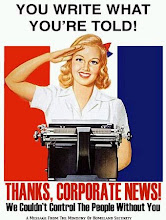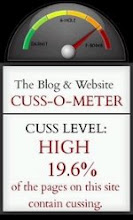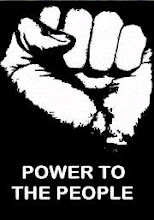June 18, 2009
Korean journalists indicted for beef story
A controversial television broadcast that offended Korean agriculture officials resulted in five indictments for biased reporting Thursday, officials said.
Four producers and a script writer of "PD Notebook" on the MBC network were accused of defaming government officials, the Yonhap News Agency reported Thursday. Their show was critical of the Korean government's decision to lift its ban on beef imports from the United States, which were imposed out of fear of mad cow disease.
Agriculture Minister Chung Woon-chun and negotiator Min Dong-seok claim the show distorted facts. The indictment also said the producers deliberately mistranslated interviews and exaggerated any threat of mad cow from imported beef.
The decision by the Korean government to lift most restrictions on U.S. beef was hugely unpopular in South Korea, Yonhap noted.
http://license.icopyright.net/user/viewContent.act?clipid=313064385&mode=cnc&tag=3.5981%3Ficx_id%3D402212453703
Saturday, June 20, 2009
Friday, June 19, 2009
Support Editors Fight to Preserve Our Privacy Right
Click on title above to join the editors fight to preserve our right to free-speech and privacy
Thursday, June 18, 2009
Big Brother Subpoenas Newspaper to ID Online Commenters
Vegas paper gets subpoena to ID online commenters
The Associated Press
Tuesday, June 16, 2009 6:34 PM
LAS VEGAS -- A Nevada newspaper says it has been served a federal grand
jury subpoena seeking information about readers who posted comments on the
paper's Web site.
The Las Vegas Review-Journal reported Tuesday that its editor, Thomas
Mitchell, plans to fight the request, which the newspaper received after
reporting on a federal tax fraud case against business owner Robert Kahre.
The subpoena seeks the identities and personal information about people who
posted comments on the story. The newspaper said prosecutors told the
judge in the case that some comments hinted at acts of violence and the
subpoena was issued out of concern for jurors' safety.
Mitchell said anonymous speech is "a fundamental and historic part of this
country." The newspaper would consider cooperating if specific crimes or
real threats were presented, he said.
The newspaper said the subpoena bears the name of U.S. Assistant District
Attorney J. Gregory Damm, a lawyer on the Justice Department team that is
prosecuting Kahre and others on charges including income tax evasion, fraud
and criminal conspiracy.
Grand jury proceedings are secret, and the subpoena is not a public record.
A spokeswoman for the U.S. Attorney for Nevada declined to comment.
The newspaper said it received the subpoena June 2, a week after its story
describing the government's case against Kahre, a Las Vegas construction
company executive accused of paying contractors with gold and silver U.S.
coins based on the precious metal value of the coins but using the much lower
face value of the coins for tax purposes. Kahre and the other defendants
have pleaded not guilty.
The story drew nearly 175 online comments by Monday night, most in support
of Kahre and critical of the government and jurors and attorneys in the
case.
One commentator said: "The sad thing is there are 12 dummies on the jury
who will convict him. They should be hung along with the feds."
Another called Damm a "socialist, fascist Mormon" and a "Nazi moron."
The comments are written under pseudonyms. Along with the real names of
people who posted comments, the subpoena asks the newspaper for the writers'
gender, birth date, physical address, telephone number, Internet service
provider, IP address and credit card numbers.
After a 2003 raid on Kahre's business, Kahre and several of his workers
sued Damm, two Internal Revenue Service agents and others who were involved.
That civil matter is pending.
In 2007, Kahre sued Damm and agents of the FBI and IRS, alleging criminal
behavior. U.S. District Court Judge David Ezra dismissed the complaint in
December, and Kahre appealed to the 9th U.S. Circuit Court of Appeals.
Two years ago, Damm prosecuted a similar tax case against nine defendants,
including Kahre. The trial ended with no convictions and four acquittals.
Five defendants were partially acquitted, and two of them were dropped from
the indictment that generated the current case.
Click on title above to go to original article;
Las Vegas Review-Journal,_http://www.lvrj.com_
(http://www.lvrj.com/)
The Associated Press
Tuesday, June 16, 2009 6:34 PM
LAS VEGAS -- A Nevada newspaper says it has been served a federal grand
jury subpoena seeking information about readers who posted comments on the
paper's Web site.
The Las Vegas Review-Journal reported Tuesday that its editor, Thomas
Mitchell, plans to fight the request, which the newspaper received after
reporting on a federal tax fraud case against business owner Robert Kahre.
The subpoena seeks the identities and personal information about people who
posted comments on the story. The newspaper said prosecutors told the
judge in the case that some comments hinted at acts of violence and the
subpoena was issued out of concern for jurors' safety.
Mitchell said anonymous speech is "a fundamental and historic part of this
country." The newspaper would consider cooperating if specific crimes or
real threats were presented, he said.
The newspaper said the subpoena bears the name of U.S. Assistant District
Attorney J. Gregory Damm, a lawyer on the Justice Department team that is
prosecuting Kahre and others on charges including income tax evasion, fraud
and criminal conspiracy.
Grand jury proceedings are secret, and the subpoena is not a public record.
A spokeswoman for the U.S. Attorney for Nevada declined to comment.
The newspaper said it received the subpoena June 2, a week after its story
describing the government's case against Kahre, a Las Vegas construction
company executive accused of paying contractors with gold and silver U.S.
coins based on the precious metal value of the coins but using the much lower
face value of the coins for tax purposes. Kahre and the other defendants
have pleaded not guilty.
The story drew nearly 175 online comments by Monday night, most in support
of Kahre and critical of the government and jurors and attorneys in the
case.
One commentator said: "The sad thing is there are 12 dummies on the jury
who will convict him. They should be hung along with the feds."
Another called Damm a "socialist, fascist Mormon" and a "Nazi moron."
The comments are written under pseudonyms. Along with the real names of
people who posted comments, the subpoena asks the newspaper for the writers'
gender, birth date, physical address, telephone number, Internet service
provider, IP address and credit card numbers.
After a 2003 raid on Kahre's business, Kahre and several of his workers
sued Damm, two Internal Revenue Service agents and others who were involved.
That civil matter is pending.
In 2007, Kahre sued Damm and agents of the FBI and IRS, alleging criminal
behavior. U.S. District Court Judge David Ezra dismissed the complaint in
December, and Kahre appealed to the 9th U.S. Circuit Court of Appeals.
Two years ago, Damm prosecuted a similar tax case against nine defendants,
including Kahre. The trial ended with no convictions and four acquittals.
Five defendants were partially acquitted, and two of them were dropped from
the indictment that generated the current case.
Click on title above to go to original article;
Las Vegas Review-Journal,_http://www.lvrj.com_
(http://www.lvrj.com/)
Wednesday, June 17, 2009
The Green Dam Phenomenon

By REBECCA MACKINNON From today's Wall Street Journal Asia.
The Chinese government may be backing down from its plan to install new "filtering" software, Green Dam, on all Chinese computers. But it would be naïve to think that scrapping the Green Dam mandate means the end of headaches for computer- and device-makers world-wide. More and more governments -- including democracies like Britain, Australia and Germany -- are trying to control public behavior online, especially by exerting pressure on Internet service providers. Green Dam has only exposed the next frontier in these efforts: the personal computer.
Corbis
First, some context: China currently has the world's most sophisticated and multi-layered system of Internet censorship. Objectionable content on domestic Web sites is deleted or prevented from being published, and access to a large number of overseas Web sites is blocked or "filtered." Decisions about what to censor are based on the Chinese Communist Party's desire to maintain power and legitimacy. There is no transparency or accountability in the censorship system, no public consultation in developing block lists or censorship criteria, and no way to appeal the blockage or removal of Web content.
Green Dam purports to take censorship to a whole new level. A report by the Open Net Initiative, an academic consortium dedicated to the study of censorship and surveillance, finds the Chinese government's mandate of censoring software at the PC-level "unprecedented." Companies installing the software risk becoming part of the existing opaque extension of regime power, at the other end of the chain that already includes Internet service providers, Web hosts and Web content companies.
But Green Dam is only an extreme example of a global trend: The Internet censorship club is expanding and now includes a growing number of democracies. Legislators are under growing pressure from family groups to "do something" in the face of all the threats sloshing around the Internet, and the risk of overstepping is high.
In Germany, Internet users and civil liberties groups are fighting proposed legislation mandating a national censorship system. The Bundestag votes today on a bill authorizing German police to establish and maintain a list of Web sites that Internet service providers would be required to block. In a petition against the bill, German civil liberties groups call it "untransparent and uncontrollable, since the 'block lists' cannot be inspected, nor are the criteria for putting a Web site on the list properly defined." These concerns aren't unfounded: Some German politicians have already suggested extending the block list to Islamist Web sites, video games and gambling Web sites, while book publishers have suggested it would also be nice to block file-sharing sites too.
Since 2007 Australia's Labor government has advocated a policy of mandatory national filtering. In the face of fierce public criticism the censorship plan may be downgraded to a voluntary industry initiative. But critics remain concerned the block list will not be selected and maintained in a transparent or accountable way -- and that the process for appeal is very unclear, making it likely that some Web sites will be blocked in error or that "mission creep" could take place without adequate public supervision.
In Britain, a "block list" of harmful Web sites, used by all the major Internet Service Providers, is maintained by a private foundation with little transparency and no judicial or government oversight of the list. At least one British family protection group, Mediamarch, has already spoken out in support of the Green Dam concept of moving censorship from the network down to the device level.
Back in China, the silver lining of the Green Dam mandate is that it has unleashed a passionate nationwide debate over the appropriate role of the government, the IT sector, media, parents and educators in protecting children from real threats. While some argue that the threat requires national mandates and tougher enforcement, others counter that draconian crackdowns and technical "auto-parent" solutions are no substitute for good parenting and teaching -- and that decisions about what children can or can't do and see must be left to individual families and schools. Sound familiar?
There are no easy answers. The argument will never end, but the right to keep arguing is an essential component of a functioning democracy. In a world that includes child pornographers and violent hate groups, it is probably not reasonable to oppose all censorship in all situations. But if technical censorship systems are to be put in place, they must be sufficiently transparent and accountable so that they do not become opaque extensions of incumbent power -- or get hijacked by politically influential interest groups without the public knowing exactly what is going on.
Which brings us back to companies: the ones that build and run Internet and telecoms networks, host and publish speech, and that now make devices via which citizens can go online and create more speech. Companies have a duty as global citizens to do all they can to protect users' universally recognized right to free expression, and to avoid becoming opaque extensions of incumbent power -- be it in China or Britain.
A new multi-stakeholder initiative called the Global Network Initiative aims to help companies do the right thing. Founded by Google, Yahoo! and Microsoft in conjunction with human-rights groups, socially responsible investment funds and academics, the initiative centers around a set of core principles for protecting users' right to free expression and privacy around the globe and helps companies to uphold those principles. Participating companies agree to develop robust human-rights policies, conduct human-rights impact assessments and be held accountable. While the initiative supports efforts to protect children and fight crime, they should "be narrowly tailored and subject to the rule of law" to prevent infringement of users' rights.
It is very encouraging that a coalition of industry groups has pushed back publicly against the Green Dam mandate, calling on the Chinese government to reconsider. But the Green Dam incident is yet another example of why it behooves companies to think ahead about how they are going to uphold their larger responsibility to society. Industry has a choice: be reactive -- and be forced into growing complicity with government censorship and surveillance around the globe. Or be pro-active, develop robust human-rights policies, and consider how to responsibly handle the inevitable pressures by all kinds of governments to serve as national auto-parent, if not auto-cop.
Ms. MacKinnon is a founding member of the Global Network Initiative, an Open Society fellow and assistant professor of journalism at the University of Hong Kong. She is writing a book about China and the Internet.
Printed in The Wall Street Journal, page A13
http://online.wsj.com/article/SB124525992051023961.html
Monday, June 8, 2009
NKorea convicts 2 US journalists
Sentences them to 12 years in labor prison
Associated Press
Last update: June 7, 2009 - 11:22 PM
SEOUL, South Korea - North Korea's top court has convicted two U.S. journalists, and sentenced them to 12 years in labor prison, the country's state news agency reported Monday.
The Central Court tried American TV reporters Laura Ling and Euna Lee and confirmed their unspecified "grave crime" against the nation, and of illegally crossing into North Korea, the Korean Central News Agency said.
It said the court — which tried the women from June 4 to 8 — "sentenced each of them to 12 years of reform through labor." The report gave no other details.
The U.S. Embassy in Seoul said it had no immediate comment.
The circumstances surrounding the trial of the two journalists and their arrest three months ago on the China-North Korean border have been shrouded in secrecy, as is typical of the reclusive nation.
There were fears that the two women would be used by Pyongyang as bargaining chips in its standoff with South Korea and the United States, which are pushing for U.N. sanctions to punish the nation for its latest nuclear blast and barrage of missile tests.
The journalists — working for former Vice President Al Gore's California-based Current TV — were arrested March 17 as they were reporting about the trafficking of women. It's unclear if they strayed into the North or were grabbed by aggressive border guards who crossed into China.
Gore spokeswoman Kalee Kreider did not have an immediate response to the sentencing.
The women cannot appeal as they were tried in North Korea's highest court where decisions are final.
The sentences are much harsher than what many observers had hoped for. The trial was not open to the public or to foreign observers.
http://www.startribune.com/world/47171042.html?elr=KArks:DCiUHc3E7_V_nDaycUiacyKU7DYaGEP7vDEh7P
Associated Press
Last update: June 7, 2009 - 11:22 PM
SEOUL, South Korea - North Korea's top court has convicted two U.S. journalists, and sentenced them to 12 years in labor prison, the country's state news agency reported Monday.
The Central Court tried American TV reporters Laura Ling and Euna Lee and confirmed their unspecified "grave crime" against the nation, and of illegally crossing into North Korea, the Korean Central News Agency said.
It said the court — which tried the women from June 4 to 8 — "sentenced each of them to 12 years of reform through labor." The report gave no other details.
The U.S. Embassy in Seoul said it had no immediate comment.
The circumstances surrounding the trial of the two journalists and their arrest three months ago on the China-North Korean border have been shrouded in secrecy, as is typical of the reclusive nation.
There were fears that the two women would be used by Pyongyang as bargaining chips in its standoff with South Korea and the United States, which are pushing for U.N. sanctions to punish the nation for its latest nuclear blast and barrage of missile tests.
The journalists — working for former Vice President Al Gore's California-based Current TV — were arrested March 17 as they were reporting about the trafficking of women. It's unclear if they strayed into the North or were grabbed by aggressive border guards who crossed into China.
Gore spokeswoman Kalee Kreider did not have an immediate response to the sentencing.
The women cannot appeal as they were tried in North Korea's highest court where decisions are final.
The sentences are much harsher than what many observers had hoped for. The trial was not open to the public or to foreign observers.
http://www.startribune.com/world/47171042.html?elr=KArks:DCiUHc3E7_V_nDaycUiacyKU7DYaGEP7vDEh7P
Subscribe to:
Posts (Atom)











